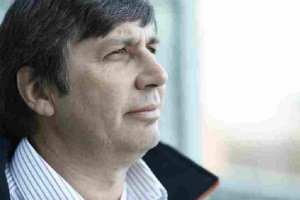Oct 15 2009
A leading physicist from The University of Manchster has been awarded a Royal Society 2010 Anniversary Research Professorship in celebration of the Society's 350th anniversary. Prof Andre Geim is Langworthy Professor of Physics at the University of Manchester and is known primarily for the discovery of graphene.

Graphene is a single layer of carbon atoms densely packed into a honeycomb lattice and the first representative of one atom thick materials which until 2004 had remained unknown. Graphene has many potential uses ranging from ultrafast transistors to bendable gadgets and from composite materials to novel batteries, and has been tipped as a likely successor to silicon in electronics. Geim is also known for his educational experiments on magnetic levitation (the “flying frog” experiment) and the development of a biomimetic adhesive known as “gecko tape”.
Commenting on his work and the receipt of the Professorship, Professor Geim said:
“Graphene has become known as a wonder material - not only is it the thinnest material in the universe but also the strongest ever measured. It can sustain current densities a million times higher than that of copper, shows record thermal conductivity and stiffness, and allows the investigation of quantum relativistic phenomena in a bench top experiment. The full list is long and is yet to be completed.
"However, there is another side to my story. Throughout my career I have jumped from one research subject to another. Before I discovered graphene, there were other successes including gecko tape, mesoscopic superconductivity and levitating frogs. My experience shows that there is still a surprising plenitude of phenomena waiting out there to be discovered. Yes, it is hard to jump between subjects but it is worth the effort. It is also great fun to search for something unexpected rather than re-search the same area from the academic cradle to the grave. My hope is that this Professorship will help me continue jumping from one exciting discovery to the next.”
Sir Andrew Wiles is Professor of Mathematics at Princeton University. He specialises in number theory and is best known for proving Fermat's Last Theorem in 1995, for which he was awarded the first International Mathematical Union silver plaque in 1998. He is also a Foreign Member of the National Academy of Sciences of the United States. Sir Andrew will take up his Professorship at the University of Oxford in 2011.
Previous holders of Royal Society Research Professorships include five Nobel Laureates and five Presidents of the Royal Society. The full list of Royal Society 2010 Anniversary Research Professorship appointments is as follows:
Professor Jon Driver FMedSci FBA, University College London. His research will focus on perception, selective attention and multisensory integration – the interplay between our different senses - in the normal and damaged human brain.
Professor Andre Geim FRS FinstP, University of Manchester. The award will allow Professor Geim to focus on his pioneering research involving 2D atomic crystals, the area that he discovered and founded.
Professor Timothy Gowers FRS, University of Cambridge. Professor Gowers’ work focuses on combinatorics – the study of discrete, and usually finite, objects. In 1998 he received the Fields Medal for research on functional analysis and combinatorics. In addition to scholarly papers on mathematics, he is also the author of Mathematics: A Very Short Introduction and other works popularizing mathematics.
Professor Tim Palmer FRS, University of Oxford and the European Centre for Medium-Range Weather Forecasts in Reading. His research focuses on the development of mathematical techniques for estimating the predictability of weather and climate, and for quantifying uncertainty in weather and climate predictions.
Professor Andrew Watson FRS, University of East Anglia. He aims to improve our understanding of ‘carbon sinks’ and develop a model for the global accounting of the atmospheric CO2 budget.
Sir Andrew Wiles KBE FRS, Princeton University. He is most famous for proving Fermat's Last Theorem. He aims to develop arithmetic techniques that will help to resolve some of the fundamental questions in his field.